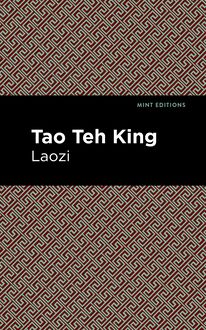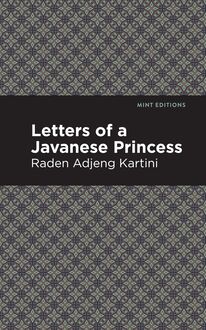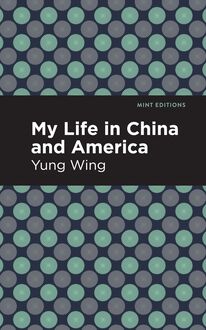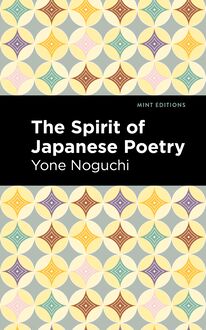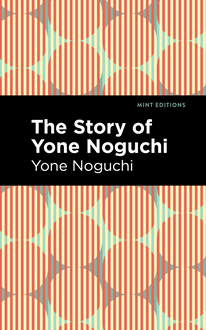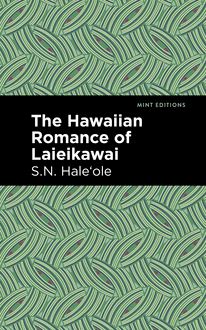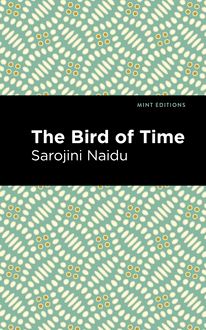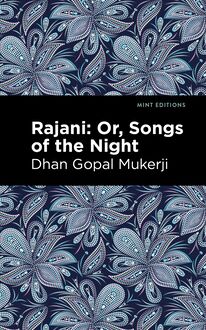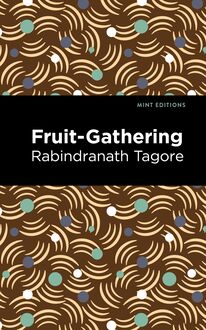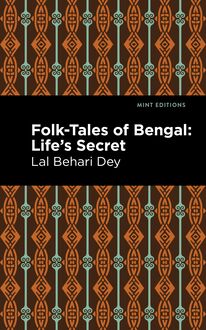-
 Univers
Univers
-
 Ebooks
Ebooks
-
 Livres audio
Livres audio
-
 Presse
Presse
-
 Podcasts
Podcasts
-
 BD
BD
-
 Documents
Documents
-
- Cours
- Révisions
- Ressources pédagogiques
- Sciences de l’éducation
- Manuels scolaires
- Langues
- Travaux de classe
- Annales de BEP
- Etudes supérieures
- Maternelle et primaire
- Fiches de lecture
- Orientation scolaire
- Méthodologie
- Corrigés de devoir
- Annales d’examens et concours
- Annales du bac
- Annales du brevet
- Rapports de stage
La lecture à portée de main
Vous pourrez modifier la taille du texte de cet ouvrage
Découvre YouScribe en t'inscrivant gratuitement
Je m'inscrisDécouvre YouScribe en t'inscrivant gratuitement
Je m'inscrisEn savoir plus
Vous pourrez modifier la taille du texte de cet ouvrage
En savoir plus

Description
Selected Poems of Yone Noguchi (1921) is a collection of poems by Yone Noguchi. Although he is widely recognizing as a leading poet in English and Japanese of the modernist period, Noguchi was also a dedicated literary critic who advocated for the cross-pollination of national poetries. Alongside a brilliant introduction, in which he addresses the collective power of world literature, he provides a selection of his best poems from a quarter century of work.
”The time is coming when, as with international politics where the understanding of the East with the West is already an unmistakable fact, the poetries of these two different worlds will approach of one another and exchange their cordial greetings.” A firm believer in plainspoken language and a practitioner of free verse, Noguchi envisioned his art as a humble contribution to the union of East and West. In his early poems written in California, he reflects on loneliness and the natural world while reveling in the extended lines and celebratory phrases made popular by Whitman. In his third collection, From the Eastern Sea (1903) he settles into a more reserved prosody, characterized by stillness and vibrant imagery. Included in this collection are his prose poems and a series of Japanese Hokkus, whose minimalism and spiritual clarity continue to captivate readers and poets of all languages and nations. “Is there anything new under the sun? / Certainly there is. / See how a bird flies, how flowers smile!” These poems not only teach us to look, but to see the world anew.
With a beautifully designed cover and professionally typeset manuscript, this edition of Yone Noguchi’s Selected Poems of Yone Noguchi is a classic of Japanese American literature reimagined for modern readers.
Sujets
Informations
| Publié par | Mint Editions |
| Date de parution | 24 mars 2021 |
| Nombre de lectures | 0 |
| EAN13 | 9781513287546 |
| Langue | English |
Informations légales : prix de location à la page 0,0350€. Cette information est donnée uniquement à titre indicatif conformément à la législation en vigueur.
Extrait
Selected Poems of Yone Noguchi
Yone Noguchi
Selected Poems of Yone Noguchi was first published in 1921.
This edition published by Mint Editions 2021.
ISBN 9781513282527 | E-ISBN 9781513287546
Published by Mint Editions®
minteditionbooks .com
Publishing Director: Jennifer Newens
Design & Production: Rachel Lopez Metzger
Project Manager: Micaela Clark
Typesetting: Westchester Publishing Services
In Memory of Basho, a Hokku Poet of the Seventeenth Century
C ONTENTS F OREWORD F ROM “ S EEN AND U NSEEN” W HAT ABOUT MY S ONGS W HERE IS THE P OET T HE D ESERT OF “ N O M ORE” S EAS OF L ONELINESS T HE G ARDEN OF T RUTH L IKE A P APER L ANTERN F ROM “ T HE V OICE OF THE V ALLEY” I H AIL MYSELF AS I DO H OMER T HE N IGHT R EVERIE IN THE F OREST S ONG OF D AY IN Y OSEMITE V ALLEY S ONG OF N IGHT IN Y OSEMITE V ALLEY F ROM “ F ROM THE E ASTERN S EA” A PPARITION O C HO S AN A DDRESS TO A S OYOKAZE U NDER THE M OON O H ANA S AN T HE M YOTO T HE G ODDESS: G OD B Y THE S EA H OMEKOTOBA U PON THE H EIGHTS T HE P OET T HE F ACE IN THE M IRROR H OW NEAR TO F AIRYLAND L INES S PRING F ROM “ T HE S UMMER C LOUDS” P ROSE P OEMS F ROM “ T HE P ILGRIMAGE” “ T HE N EW A RT” B Y THE E NGAKUJI T EMPLE: M OON N IGHT T O A N IGHTINGALE I AM L IKE A L EAF T O THE S UNFLOWER S HADOW T HE F ANTASTIC S NOW-FLAKES G HOST OF A BYSS A UTUMN S ONG F ANTASIA T HE T EMPLE B ELL T O THE C ICADA T HE L ADY OF U TAMARO’S A RT T HE B UDDHA P RIEST IN M EDITATION I N THE I NLAND S EA K YOTO M Y L ITTLE B IRD H ER W EAPONS ARE A S MILE AND A L ITTLE F AN M Y H EART T HE L OTUS W ORSHIPPERS L INES T HE E ASTERN S EA T O A S PARROW R IGHT AND L EFT I N J APAN B EYOND C RADLE S ONGS F ROM “ J APANESE H OKKUS” J APANESE H OKKUS
F OREWORD
I often wonder at the difference between the words of English Poets and the daily speech of common people; and I think that it is not necessary to go to Milton or Dryden for the proof. The poetical words used by Tennyson, Browning, Francis Thompson, and even Yeats, are certainly different from those spoken in the London streets or an English village shadowed by a church spire or darkened by dense foliage. But, on the other hand, how similar are the words of Japanese poets and those of the common people! Is it that the Japanese poets, whether they be Uta poets or Hokku writers, are condescending to the common people? Or is it that the common people of Japan are entering into the realm of poesy? Or is it that our Japanese phraseology belongs to either of them, or does not belong to either of them, through its virtue of being neutral in nature?
Suppose a pensive young lady is standing by a veranda opened to the garden with blooming cherry trees, and her eyes are following the snow-white petals of cherry blossoms hastening to the ground. And suppose she murmurs with a sigh, “Why do the flowers fall in such a flurry?” Now compare such an exclamation with the following Uta poem by Ki no Tomonori:
“’Tis the spring day
With lovely far-away light…
Why must the flowers fall
With hearts unquiet?”
It is plain to see how the words of Japanese poets and common people join hands. This particular point is most worthy of notice in the discussion of the differences and similarities between the East and West in literature.
It is said in the West that the poets are a race apart. The fact that our Japanese poets are not a race apart should be the very focus for a discussion of Japanese poets. While in the West the poets claim special regard and, indeed, immortality for themselves, we in Japan treat the poet as a natural phenomenon, as natural as a flower or bird.
I admit that we Japanese as poets are lacking in creative power, and do not aim, like many Western poets, at becoming rebuilders of life. We are taught not to deal with poetry as a mere art, but to look upon it as the most necessary principle along which our real life shall be developed. When we kneel before poetry, it is our desire to create a clarified pure realm where we can, through the inspiration of rhythm, arrange our own minds. And then we recognise the existence of the compromising ground of passion, where we as members of society find our safety. What great uncompromising creators of passion were Shelley, Byron, Browning, and Swinburne! They were so earnest in their desire for the recreation of life, and not afraid were they, when their desire reached its climax, even to risk reaching a condition of confused intricacy. They were indeed great and wonderful heroes. We cannot help thinking, on the other hand, what cowards the majority of Japanese poets have been.
I respect that attitude of Western poets in wishing to rebuild or recreate their own lives; and also I can well understand why they ascribe importance to their intellectual power. A great literary danger lies in this, of course, because there is nothing more sad and terrible for poets than to enslave themselves to intellect.
But we have also our own literary danger. I mean that we often mistake a simple and cold morality for an art. I should like to know what is a more dangerous thing for poets than this sad morality. There are only a few Japanese poets who have failed from their abuse of moods and passions; but we know so many cases wherein their poetical failure was quite complete under the stifling breath of conventional morality. This damage would not necessarily be below that inflicted by intellect; it might be greater. We notice that the Western poets often attempt to discover a poetical theory even in the waving plaits of Apollo’s robe and analyse intellectually a little cloud flying in the sky. Admitting that their poetical theory and intellectual power are doubtless great, I have no hesitation in declaring that it is they who harden, shrink, and wither their own art. It is true to say that they owe much to the matter of form for the great development of their epics and dramas. Also it is true that the undeveloped form of Japanese poetry has given a mighty freedom for our poets to fly into an invisible spiritual domain. We can say again that, if these poets both of the West and the East often stray into the field of non-poetry, it is the result of their too close attachment to forms.
Of course we want more passion and intellect in our Japanese poets, and also properly tempered patience and effort. And at the same time we should hope that the Western poets would forget their passion and intellect to advantage and enter into the real poetical life born out of awakening from madness. I have no quarrel with a critic when he applies the word “mad” to his Western poets; but we Japanese would be pleased to see and admire the rare moment when madness grows strangely calm and returns to its normal condition, and there we will find our own real poetry. Not the moving dynamic aspect of all the phenomena, but their settled still aspect inspired the Japanese poets—at least the Japanese poets of olden days—to real poetry. But I know that the times are changing when we must, I think, cultivate the really living dynamic life. And I am afraid, with many others, that such a new literary step may bring us into an unhappy compromise with Western literature. Of course there are poets and writers both of the East and West who know only how to compromise. But, on the other hand, we have a natural-born Easterner, for instance, Wordsworth, in the West, and there may be a natural-born Westerner in the East, who will bring the East and West together into true understanding, not through faint-hearted compromise but by the real strength of independence which alone knows the meaning of harmony.
To-day we must readjust the meanings of all things or give a new interpretation to all the old meanings; and we must solve the problem of life and the world from our real obedience to laws and knowledge that will make the inevitable turn to a living song, and learn the true meaning of time from the evanescence of psychical life; then our human lives will become true and living.
We must realise the ephemeral aspect of moments when time moves, and also the still aspect of infinity when it settles down; seek the meaning of moments out of the bosom of infinity, and again that of infinity from the changing heart of moments—that is the secret of real poetry. The moments that suggest the still aspect of infinity are accidental, therefore living; again the infinity that is nothing but another revelation of moments is absolute, therefore quiet and full of strength and truth. The real poetry should be accidental and also absolute. See the river and trees, see the smiling garden flowers, see the breaking clouds of the sky. See also the lonely moon walking a precipitate pathless way through the clouds. The natural phenomena are, under any circumstances, revealing both meanings of the accidentalism which is born from the absolute. When our great poets of Japan write only of a shiver of a tree or a flower, of a single isolated aspect of nature, that means that they are singing of infinity from its accidental revelation.
The poetical attitude of Wordsworth was anarchical when, singing of the small celandine, daisy, and daffodils, he gave even a little natural phenomenon a great sense of dignity by making it a center of the universe, and broke the stupid sense of proportion by looking on things without discrimination; he was pantheistic, like nearly all Japanese poets and painters, because he was never troubled by any intellectual differentiation, and his clear and guileless eyes went straight into the simplicity that joined the universe and himself into one. His poetical sensibility was very true and plain, and he gained a real sense of the depth of space, the amplitude of time, and the circle of the universal law, and made his life’s exigency a new turn of rhythm. I am glad to think of Wordsworth as the first Easterner of English literature.
I do not know what one critic means when he calls Robert Brid
-
 Univers
Univers
-
 Ebooks
Ebooks
-
 Livres audio
Livres audio
-
 Presse
Presse
-
 Podcasts
Podcasts
-
 BD
BD
-
 Documents
Documents
-
Jeunesse
-
Littérature
-
Ressources professionnelles
-
Santé et bien-être
-
Savoirs
-
Education
-
Loisirs et hobbies
-
Art, musique et cinéma
-
Actualité et débat de société
-
Jeunesse
-
Littérature
-
Ressources professionnelles
-
Santé et bien-être
-
Savoirs
-
Education
-
Loisirs et hobbies
-
Art, musique et cinéma
-
Actualité et débat de société
-
Actualités
-
Lifestyle
-
Presse jeunesse
-
Presse professionnelle
-
Pratique
-
Presse sportive
-
Presse internationale
-
Culture & Médias
-
Action et Aventures
-
Science-fiction et Fantasy
-
Société
-
Jeunesse
-
Littérature
-
Ressources professionnelles
-
Santé et bien-être
-
Savoirs
-
Education
-
Loisirs et hobbies
-
Art, musique et cinéma
-
Actualité et débat de société
- Cours
- Révisions
- Ressources pédagogiques
- Sciences de l’éducation
- Manuels scolaires
- Langues
- Travaux de classe
- Annales de BEP
- Etudes supérieures
- Maternelle et primaire
- Fiches de lecture
- Orientation scolaire
- Méthodologie
- Corrigés de devoir
- Annales d’examens et concours
- Annales du bac
- Annales du brevet
- Rapports de stage

